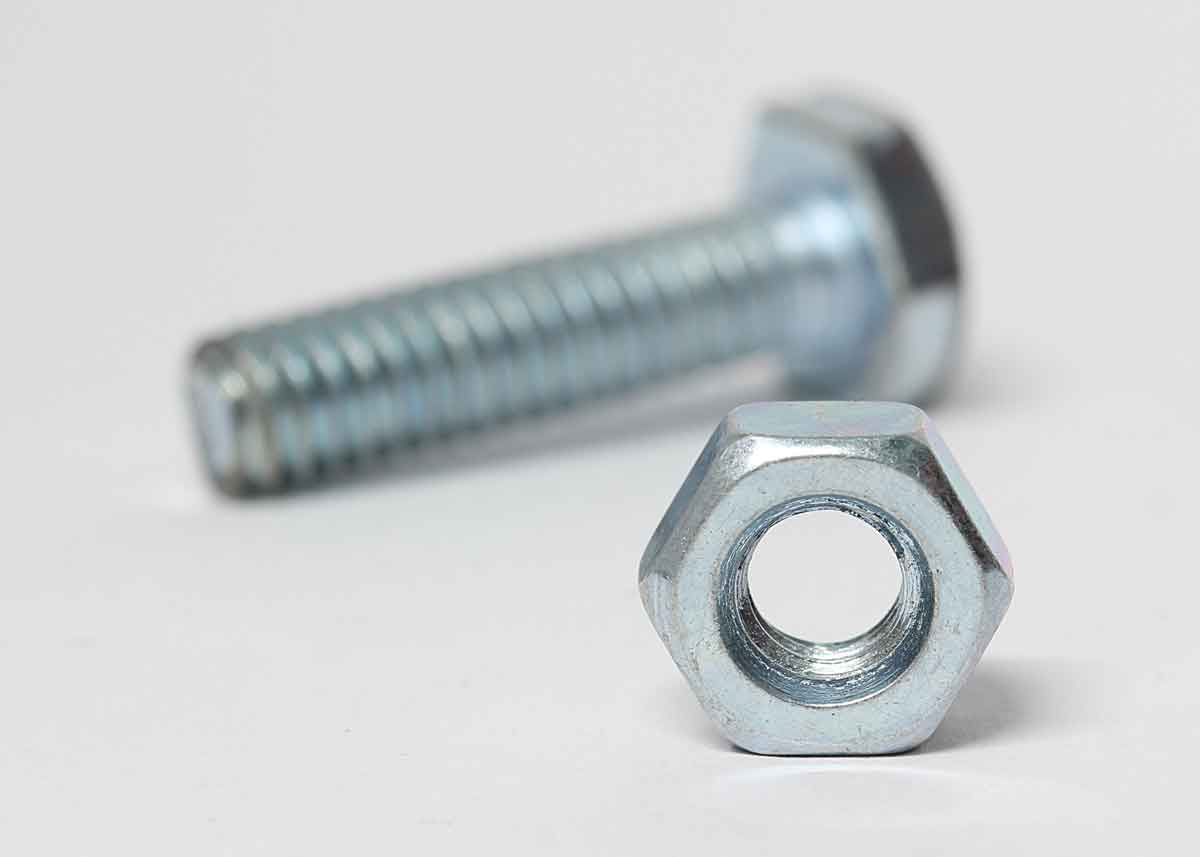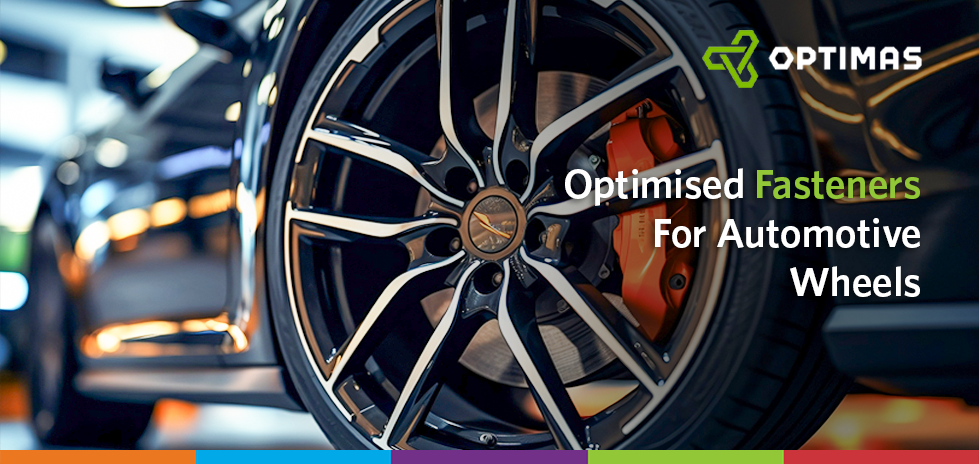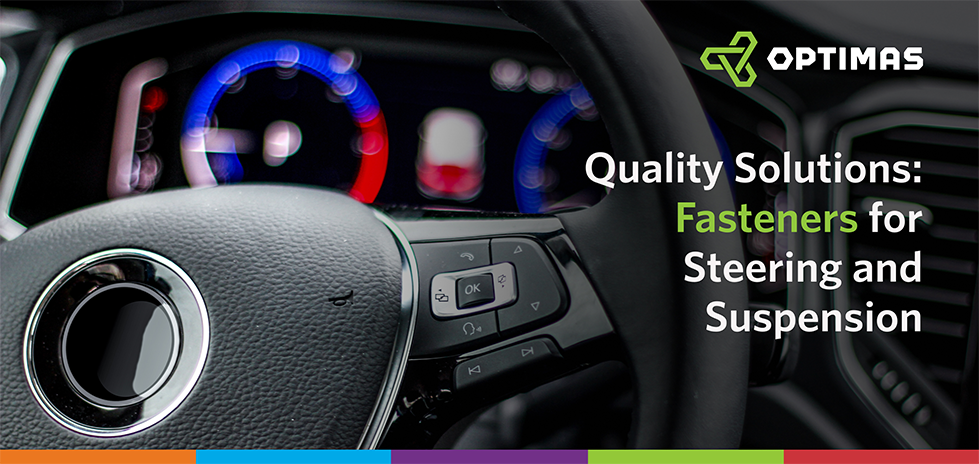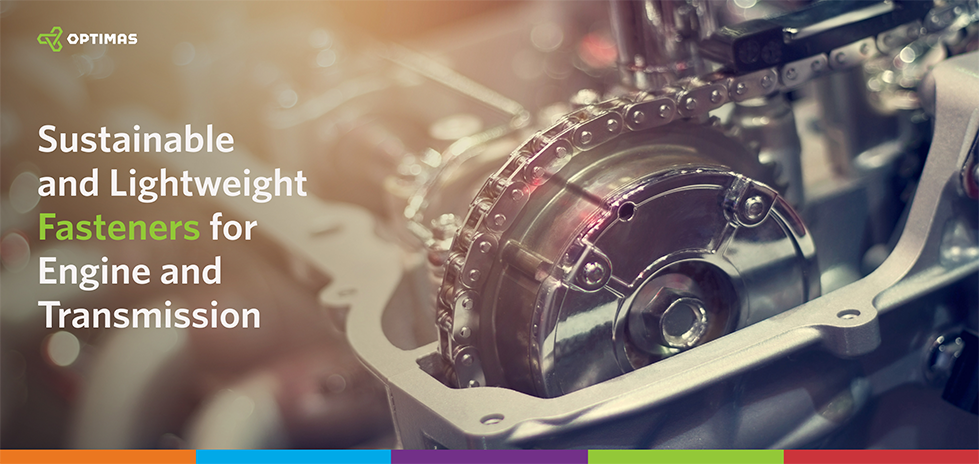Optimas has worked with a global truck manufacturer in developing a simple locknut design which reduces vehicle curb weight and also improves durability.
As emissions regulations become stricter and the price of oil continues to rise, there’s no denying the fact that the Heavy Duty Truck industry is becoming more and more competitive. This is why manufacturers are working hard to reduce vehicle weight and maximize reliability – so their customers can profit from every extra mile. Fortunately, companies like Optimas are able to find innovations on seemingly simple components to give manufacturers an edge.
Broken down into its simplest terms, the success of any commercial vehicle (no matter what industry or application it serves) can be defined by three Key Performance Indicators (KPIs): payload, fuel efficiency and maintenance costs. If a vehicle is able to carry a greater load further than its rivals with a reduced burden of maintenance, then it’ll be a long term success, no matter what’s happening to the global economy.

For this reason, despite the huge size of many trucks, there is currently an arms race underway to develop lighter, greener vehicles which can endure the shock loading and high miles of long haul routes. Truck manufacturers are looking for technologies that can save weight in a manner more akin to NASCAR teams, which is what led a global truck manufacturer to approach Optimas with a locknut weight reduction challenge.
As a specialized provider of fasteners and c-class components, supply chain solutions and engineering support for manufacturers, Optimas has over 30 years’ experience improving the overall efficiency and quality of business’ production lines. With a global supplier network, local warehouse and engineering support across the Americas, EMEA, and APAC, Optimas has worked with manufacturing partners to reduce cost and enhance the performance of their logistics, design, and production operations.
Optimas operates a unique business model that involves investment, both in terms of resources and personnel, in all aspects of logistics, component supply, engineering, forecasting demand, quality control, and manufacturing itself. This means that for each partner a unique service is offered with distinct benefits. For example, one customer benefited from an immediate, double digit percentage production cost saving after Optimas engineers completed an assessment of the cross functional supply chain operation across the entire plant.

It was this unique insight and expertise on which the truck manufacturer was relying when it approached Optimas with the challenge of finding a single, lightweight locknut to replace the multiple nylon inserts and platings previously specified. While reducing weight was the main goal of the project, the manufacturer also wanted to improve the overall performance of the part, thus boosting durability and reliability. The locknuts would be used on the chassis of the trucks so they were expected to be resistant to corrosion, hold greater torque tensions, and were also required to have an environmentally friendly coating.
Optimas engineers were stationed at the manufacturer’s R&D center and worked directly with the design team to produce a collaborative engineering effort, using Optimas’ product expertise and the client’s industry experience. This stage included a series of tests, including the use of an RS Torque Tension Unit to calculate friction and load capacity to identify the right locknut. Once the design was finalized, further testing of the plate material was carried out to ensure paint adhesion and lasting torque tension.
The final product was a single metal fastener that replaced the variety of heavier, more complex nylon parts which were previously available to the manufacturer’s design department. This piece reduced the parts inventory, lowered costs, and created a 10% reduction in weigh, as well as increasing durability in operation.
The three KPIs which can be used to measure the success of any commercial vehicle are payload, fuel efficiency and maintenance costs. The solution offered by Optimas has resulted in measurable improvements in each of these areas.


 Optimas | June 29, 2017
Optimas | June 29, 2017


